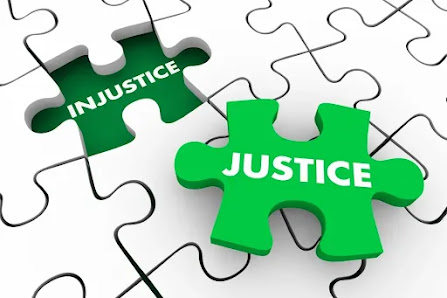UNPACKING POVERTY, THE PETULANT WOUND OF AFRICA
Image from Pexels by Kelly
The 1960s and 1970s stand out as the
years when Africans in many countries were freed from the white man’s rule.
These two decades marked the end of the era of colonialism. Whenever I watch
the black and white film reel of the moment when the British Union Jack flag
went down and the Kenyan flag was hoisted at Uhuru Gardens on December 12,
1963, I can only imagine the emotions that must have flooded the hearts of the
elated onlookers as they shouted joyfully; filled with indescribable relief,
immense satisfaction and immeasurable hope. Hope for a better future where
poverty would be a thing of the past, for the vast resources whose benefits
they had been robbed of for almost a century would revert back to them. A
restoration of wealth. An economic system that seeks not to take away, but to
ensure that every person is able to live comfortably by being able to afford
the basic necessities of life namely, food and water, shelter and clothing, and
is able to access quality education and healthcare services.
Let’s fast forward to present-day
Africa. According to statistics, Africa is the poorest continent in the world,
with its purchasing power parity (PPP) standing at $6,825, and millions of
people living on less than one dollar per day- an indication of extreme
poverty. Echoing the concern expressed by Burkina Faso’s de facto President
Ibrahim Traore, “How can Africa, which has so much wealth, become the poorest
continent in the world today?”
For most Africans, basic necessities
have become unattainable luxuries. The cost of living never seems to fall to
reasonable and affordable levels as commodities and services are being
subjected to punitive taxes in the name of efforts to pay off public debts,
almost robbing them of dignity as humans. While this happens, benefits of
resources end up in the pockets of the political elite. Ultimately, the rich
become richer and the poor become poorer, a man-eat-man society. It is no doubt
that the greediness of a few people is one of the major reasons why Africa
remains a poor continent despite its rich resources. It appears that leaders
seeking mandate from the electorate, purporting to have their best interests at
heart and promising to be their voice is a mockery of their trust and a fallacy
at best, for as soon as they get into power, a life of extravagance and
opulence with funds from public coffers seems to be the reason why they were
elected into government. This not only robs the electorate and the citizenry in
its entirety of what rightfully belongs to them, but also undermines the rule
of law as well as democracy and exhibits total heedlessness to the social
contract doctrine which informs the whole idea of a government.
As many would say, the economy to a
nation is what blood is to the body. Therefore, challenges in the economic
system of a nation are cancerous to the nation because they affect the everyday
undertakings of a nation, impacting the livelihoods of people in terms of
development, imposition of taxes, inflation and even wealth. One such challenge
that has had effects on the wealth of African countries is the lack of economic
independence.
A classic instance of this is the
use of the CFA Franc (the Franc) currency in 14 countries of West and Central
Africa, a region commonly known as the Franc zone. The Franc is tied to the
Euro at a fixed exchange rate ensuring the stability of the Franc despite
market conditions. In order to secure
this exchange rate, the countries in the Franc zone are required to deposit 50%
of their foreign reserves with France. Advantageous as it may seem in tough
economic times for the Franc to be pegged to the Euro, it limits the autonomy
of the economy of the Franc zone during periods when the value of the Franc
could potentially rise.
The value of the Franc also falls
when the value of the Euro falls. In addition to that, these foreign reserves
deposited with France do not accumulate interest and a country can only
withdraw a certain limited amount of their reserves at a time. Some member
states of the Franc zone have recently expressed their intention to do away
with the Franc as it not only makes economic development difficult, but also
appears as a form of French Imperialism, reminding them of colonialism, seeing
as the currency was introduced in 1945 when West and Central Africa was under
the rule of France. Instituting a new currency will ensure financial
sovereignty and preserve the benefits of resources for the people of this
region, thereby sustaining wealth and ultimately alleviating poverty.
It cannot go without notice that
realization has dawned upon Africa and a new era of economic liberation and
escape from poverty is in the wake. I believe that achieving our goals starts
with the strengthening of governments in African countries by ensuring that
leaders and those at the helm of influencing change act in a manner that not
only conforms with the rule of law, but also protects and promotes the interest
of the people. Also, learning from our past mistakes and present situation, it
is time that we made better financial decisions as a continent for the
improvement of our economic systems. There is, certainly, light at the end of
the tunnel.
Valerie Moraa is a student of Law at the University of Nairobi.




Comments
Post a Comment